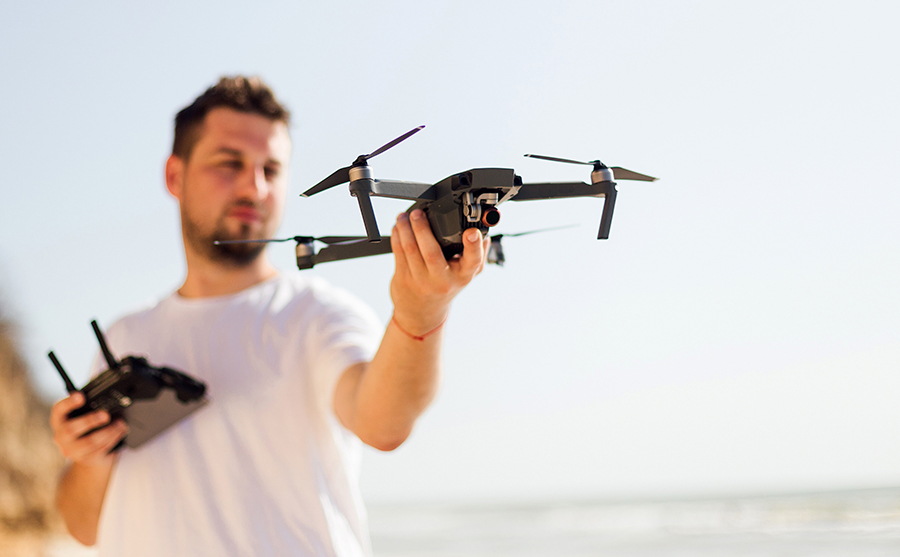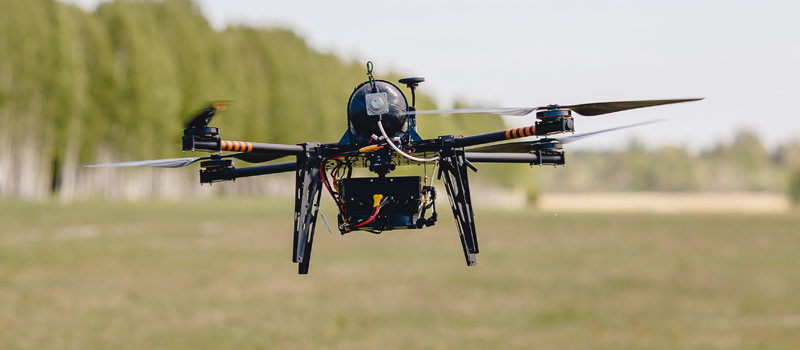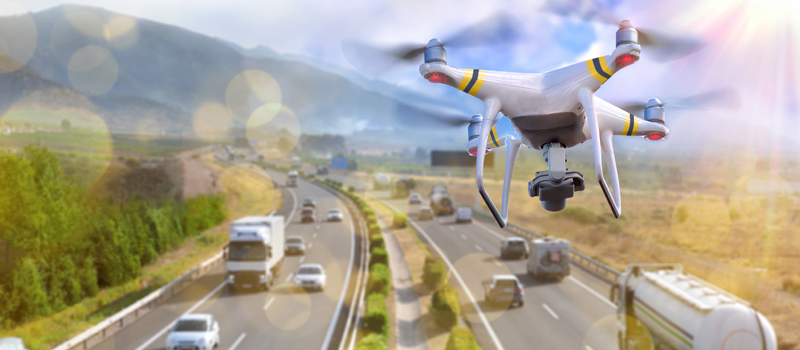-
What does the law say about flying drones over private property?
-
Why is shooting at drones illegal?
-
What to do when someone shoots at your drone
- Get in touch with local law enforcement
- Report to the local FAA Flight Standards Office
- Report to your insurance
-
Tips on avoiding violence towards your drone
- Review your local laws
- Talk to your neighbors
- Avoid hovering over private property
- Join a local drone group
-
Final thoughts
Shooting a drone out of the sky is illegal based on federal laws, even if it is within private property. It is also illegal to throw anything at the drone in an attempt to knock it out of the sky. When this happens, it is imperative to inform your local law enforcement and local FAA Flight Standards Office (FSDO).
Stories of drone pilots having their drones shot at are incredibly common. As drones become more common, we expect such cases to also happen more frequently. After all, lots of people still worry about drones possibly violating their privacy. What should a drone pilot do in such a situation?
What does the law say about flying drones over private property?
According to federal laws, the FAA has sole jurisdiction over national airspace with very few exemptions. By definition, airspace starts at any point above the ground. This means that property owners cannot impose restrictions on the airspace above their property, and thus cannot legally restrict drones from flying over.
The opinion of the federal government on this matter is quite clear, but it gets a lot more ambiguous when we look at laws at the state or municipal levels. Concerns over privacy violations remain rampant when it comes to drones, some of them justified by actual cases of voyeurism and unwanted surveillance. Unfortunately, the FAA has not implemented regulations yet that will address these concerns.
As a response to civilian concerns, many states and cities all over the U.S. have passed laws that restrict drone flight over private property. For instance, Nevada has declared a law that flying a drone below 250 feet over a person’s private property can be considered trespassing, especially if the property owner had previously notified that they do not allow drone operations over their property.
Such drone laws at the state or municipal levels are controversial when they are in conflict with federal laws. The property owner may still have a valid case for nuisance or voyeurism, depending on what exactly the drone was doing over the property. However, airspace conflicts will more often be decided in favor of the FAA.
Why is shooting at drones illegal?
There actually are several reasons why firing a weapon at a drone is illegal. Someone who does this may be charged with a federal crime plus one more state or local crime or criminal mischief.
According to Title 18 US Code 32, the destruction of an aircraft is considered a federal crime. The FAA and the NTSB consider all types of drones as aircraft, therefore protecting them under this law. This applies to all drones, whether they are used commercially or recreationally.
Again, the ownership of airspace over private property becomes relevant in this matter. Whether a property owner can claim shooting a drone as self-defense can be argued because there are no federal laws that define flying a drone over private property as trespassing. Moreover, there are laws that prevent the weaponization of drones. With these laws in place, self-defense is a weak argument for shooting down a drone.
There may also be local laws in place that penalize the indiscriminate firing of weapons. This may apply in the case of drones, particularly when they pose no threat to the person or property involved.
Finally, the drone is still considered someone’s private property. Shooting one down can be considered destruction of private property, which can be a civil case.
With all these laws in place, the cards certainly seem stacked in favor of the drone pilot in the case of a drone getting downed by a weapon. This even applies to jamming or spoofing the signal of a drone, as these are also prohibited under federal law.
What to do when someone shoots at your drone
Even with the laws in place, drones getting shot at continues to be a common occurrence. The course of action is essentially similar to whether the shot at your drone was successful or not. If this happens to you (and you believe you are in the right), then here are the steps to take:
Get in touch with local law enforcement
The safest first step to take is to contact your local law enforcement agency as soon as possible. Depending on your local laws, the fact that a firearm was discharged in a situation where there was no threat should be enough to get the attention of your local police. It is also best to have the police act as a liaison between you and any disgruntled neighbor.
Report to the local FAA Flight Standards Office
The next office that can help in this situation would be your local FAA Flight Standards Office (FSO). Since this is an aviation-related incident, having the FAA involved should help resolve any issues or laws based on aviation.
The FAA also has a Legal Enforcement Assistance Program (LEAP) that can support law enforcement agencies in investigating aviation-related incidents. Getting the FAA involved is essential in cases when the local police are also not knowledgeable about aviation laws.
Report to your insurance
If there was any damage to your drone, you will want to let your insurance provider know about the incident. This should allow you to repair or replace your drone under the coverage of your policy. The insurance provider may also assist in pursuing legal action against the person who damaged your drone.
Approaching your neighbor about the incident depends largely on your previous relationship with said neighbor. If you have been friendly in the past, then there’s a good chance that you can talk about the incident amicably. Your goal in this discussion would be to educate your neighbor about the laws regarding drone flight and to come up with a scenario where both parties can be satisfied.
Tips on avoiding violence towards your drone
The ideal scenario would be to altogether avoid incidents where there are violent reactions toward your drone. There is no way to guarantee that it will never happen, but you can take steps to keep your drone a bit safer.
Review your local laws
Knowledge of local laws is arguably as important for a drone pilot as knowledge of federal laws. There are many states that prohibit drone flight over public property such as parks. You will also want to be aware of any state or city-specific definitions of trespassing by drones, even if they are in conflict with FAA regulations.
To help with this, Pilot Institute has created a database of local drone laws. This is an evolving resource that will be updated when new laws and information become available.
Shooting down a drone is still illegal except in the most extreme circumstances – no local laws will change that fact. However, you will not want to be caught in a situation where you are ignorant of local laws. Arming yourself with knowledge of local laws is pretty much like signing a tick in your pre-flight checklist.
Talk to your neighbors
If you have lots of nearby neighbors and you plan on flying your drone regularly from your own property, then take the time to talk to them and explain your situation. Just knowing that you own the drone could be enough to relax their concerns about it. Be open to communicating with them in case they have concerns – you may be flying within your legal rights, but maintaining harmonious relationships with your neighbors is also important.
Avoid hovering over private property
A certain way to make a person paranoid about drones is to have them hover above someone else’s property for sustained periods repeatedly. This may be perfectly legal, but you cannot argue that such a practice is disconcerting.
To avoid conflict, try to avoid having to over someone else’s private property. Passing over the airspace is probably fine. If it’s unavoidable to hover over the property, it would be best to talk with the owner or residents, just to allay any of their concerns.
Join a local drone group
There are now lots of state or city-specific drone groups that communicate regularly, whether online or in person. The value of having such a support group cannot be overstated. Local knowledge can help you identify the best spots to fly your drone and can help keep you updated about local drone laws.
It’s also good to have nearby like-minded drone pilots in the case of a violent conflict. Local experts can provide sound advice on what to do next and how you can approach the situation. You might even get in touch with local FAA representatives through these groups.
Final thoughts
It is an unfortunate truth, but drones getting shot at is something that continues to happen and will likely still happen in the coming years. There are ways to avoid such conflicts, and we always recommend attempts to de-escalate these situations.
Fortunately for drone pilots, the law is usually on their side in such events. Shooting down drones is still considered illegal in almost all cases based on federal laws. When this happens, get in touch with your local law enforcement and FAA FSO.



